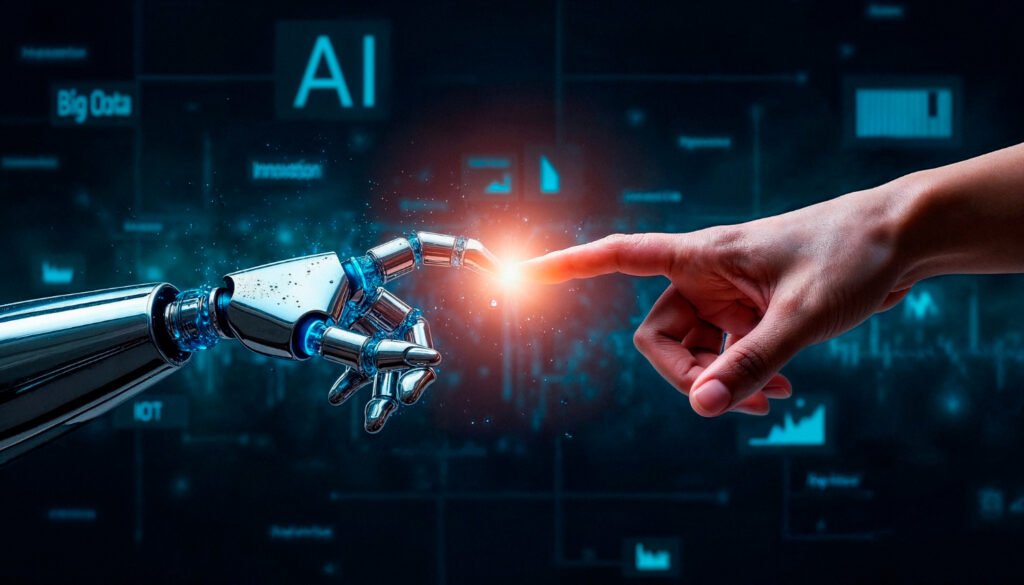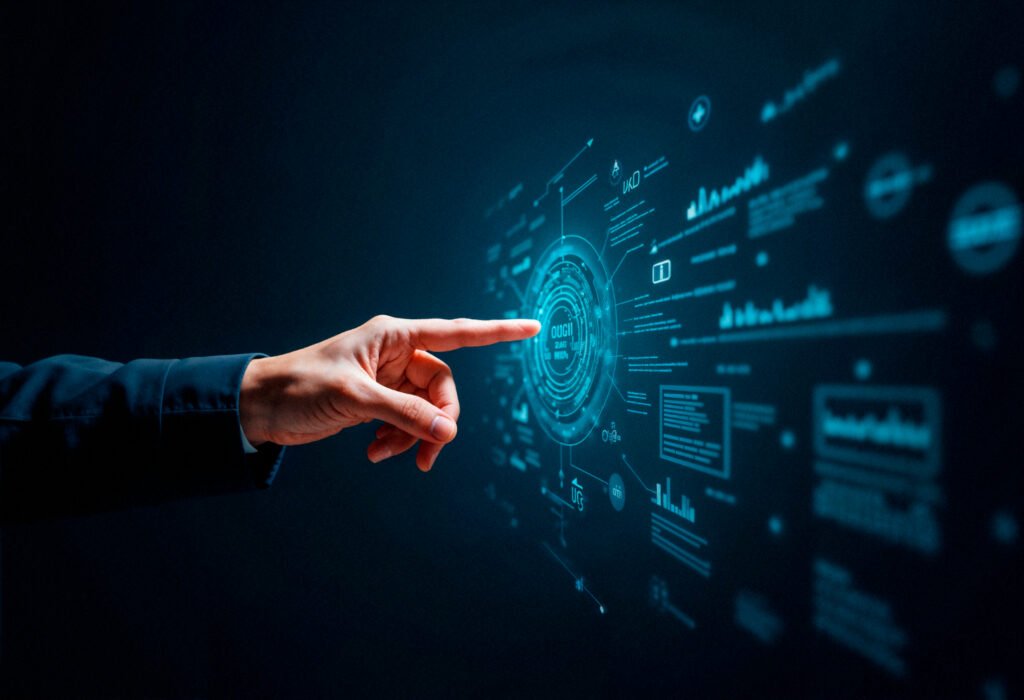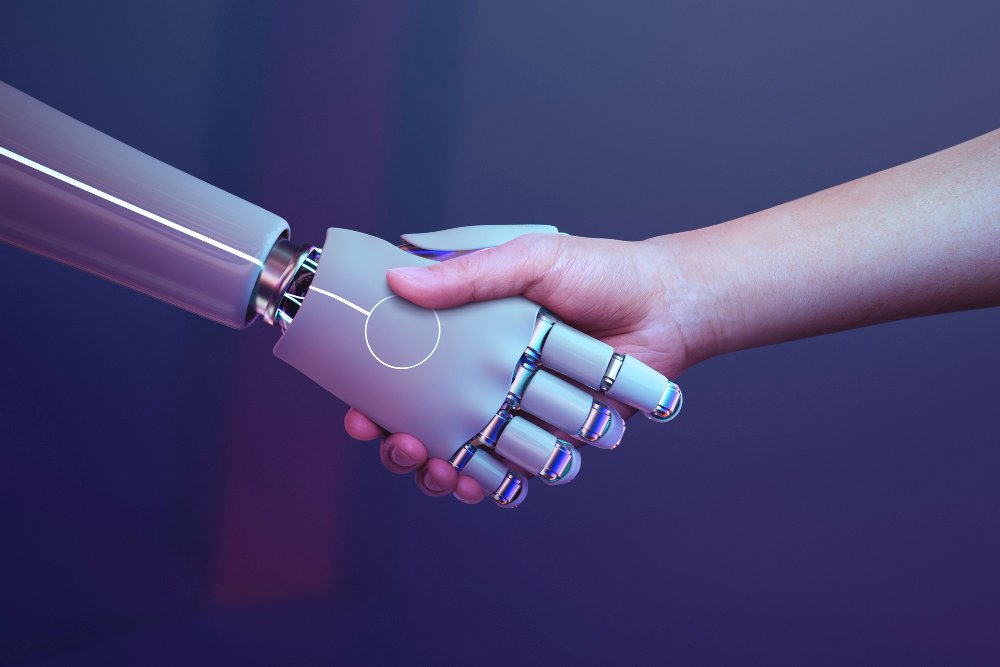Beginning. Artificial Intelligence

Artificial Intelligence (AI) is transforming the world faster than ever before. From chatbots communicating with customers to algorithms predicting trends in the stock market, this type AI is no longer a vision of the future, it is a powerful tool that is beginning to permeate everyday life and work. As these technologies develop further, one of the most significant topics we need to debate is in regard to employment and what this means for the human worker. A typical question humans have is what AI worker, will it displace human laborers in the workforce and what jobs could be impacted!
The Future of AI and the Jobs that AI Displaces is a conversation that brings a level of excitement and anxiety. On one hand, AI can provide business concepts on management, innovation, and new industries previously considered impossible. On the other hand, we have still unresolved questions about what employment will look like in terms of automation and the skills readiness of the workforce for a new AI economy. Certainly, routine and repetitive types of jobs are at risk for potentially being eliminated due to automation while other routine types of jobs may still exist but look very different in the future. When we talk about automation and which types of jobs may be eliminated or evolve, there may be new opportunities to be created for workers that are willing to adapt to this new change of work.
In this article we will discuss how AI is changing the workplace globally, the types of jobs that are likely to be displaced (or evolve), and how we can prepare for the future of work where humans and AI will co-exist.
The Future of AI and the Jobs It Can Take Over. Artificial Intelligence

Everyday life has AI’s influence already, and it is not just a subject of the future anymore. It has positioned itself in the frameworks of multiple industries, automating previously complicated tasks and facilitating better decision making. The big question is: What does the future of AI mean for jobs, and which roles are most at risk?
We will analyze The Future of AI and the Jobs It Can Take Over and which position will keep evolving and which will become obsolete, while also discussing the ways an individual can shield themselves in an AI heavy world.
Why AI Is Reshaping the Job Market
The employment of predictive analytics in an organization ensures reliable and near-accurate forecasting of data trends.
The presence of AI tools in a business heavily streamlines processes, as is proven in the cases of customer relations and healthcare.
Machine learning, coupled with natural language processing and visual processing systems, has enabled the automation of repetitive, simple, and data intense tasks.
Routine tasks are automated through AI, thus increasing value adding activities while equally diminishing headcount.
Jobs Most Likely to Be Taken Over by AI
While AI can’t replace every human skill—such as creativity, empathy, and critical thinking—some jobs are more vulnerable than others.
Examples include:
Data Entry Clerks – Repetitive tasks can be automated by software.
Customer Service Representatives – Chatbots and virtual assistants can handle basic queries.
Telemarketers – AI-powered systems can make calls and personalize messages.
Manufacturing Line Workers – Robotics already replace many manual tasks.
Retail Cashiers – Self-checkout systems are powered by AI-driven software.
Jobs That Will Evolve, Not Disappear
Not all jobs will vanish. Many will adapt as AI becomes a supportive tool rather than a replacement.
Healthcare Professionals – AI assists with diagnosis, but human empathy remains essential.
Teachers – AI can personalize learning, but the human role in mentoring is irreplaceable.
Writers and Creatives – AI helps with research and editing but can’t replicate deep creativity.
Engineers and Data Scientists – Demand for AI specialists will continue to grow.
Preparing for the Future of AI and the Jobs It Can Take Over
To stay ahead
5 FAQs Artificial Intelligence

- What is The Future of AI and the jobs it can take And How Do AI’S Takeover Functions
The future AI and the jobs it can take over focusses on automation of mundane and repetitive and data-minded activities like data capturing and entry, customer servicing, and manufacturing processes. This also explains which jobs are most vulnerable and the shifts needed in the workforce.
- What types of jobs What Positions Are Likely To Withstand AI The Most
Jobs most susceptible or prone to Withstand AI are:
Data capturing personnel
Telemarketers
Customer support agents
Assembly workers
Cashiers in shops
- Will AI in the future control will take command over all jobs Artificial Intelligence
No, AI is not going to control all jobs. While AI can easily automate monotonous and mundane activities, jobs that require imagination and creative thinking, emotions and feelings, management and leadership skills, and critical and analytical thinking like in medical fields, education, and frontline offices are highly unlikely to be replaced.
- In what ways can workers prepare for the possible impacts of AI on their lines of work?
The workers can prepare for the impacts of AI on the workplace through:
Gaining advanced knowledge on tech systems and achieving data proficiency.
Improving on personal attributes and achieving higher order skills like innovation and management.
Being open to new paradigms, while engaging in continuous education.
AI design and administrative positions.
- Which positions will emerge as a result of Artificial Intelligence?
Due to the implementation of more sophisticated AI systems, a marked increase in demand will emerge for AI engineers, data scientists, machine learning practitioners, cybersecurity professionals, and AI ethicists.
Conclusion Artificial Intelligence

The Future of AI and the Jobs It Can Replace is not about replacement by robots but transformation. It is true that some jobs, like data entry, customer service, and repetitive lots-of-action jobs are especially vulnerable to automation through AI. Another note of caution is that AI will create entirely new industries and positions. So it will not end work but transform our ideas and expectations of work.
The important lesson is that our willingness to adapt will be more important than our knowledge. Workers who pursue lifelong learning to accumulate a definitely positive genetic skill set will learn digital skills and develop the uniquely human attributes of creativity, critical thinking, and emotional intelligence that will become indispensable in a AI-related future will not just survive, but thrive. The businesses we work for must also maintain a balance of responsibility and efficiency at the same time to ensure technology is the means of innovation and does not overcome partner with which to grow all Company and employee performance.
As we peer into the future, we can be sure of one thing, AI is here forever. The issue will not be whether AI will change the job market, but how we will choose to react. If today we consider how to prepare for an AI-related future, we can begin to define the challenges we may face into the opportunities we will discover, and create a future in which humans and AI do more by working together than either could do alone.

